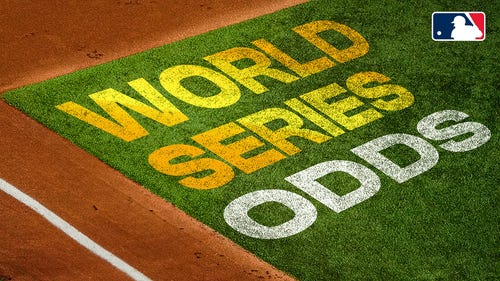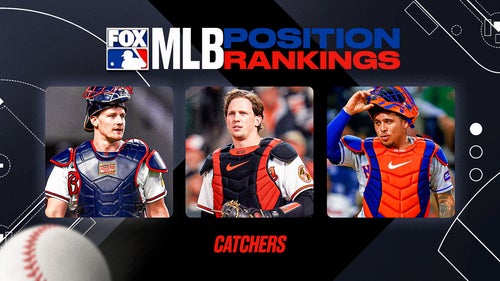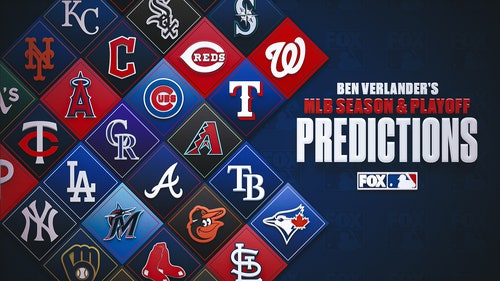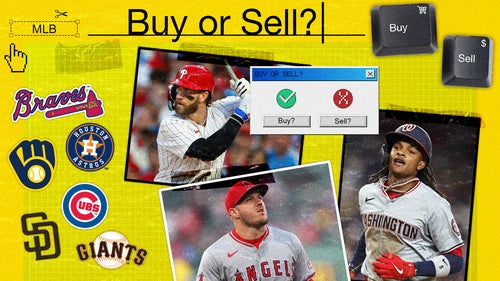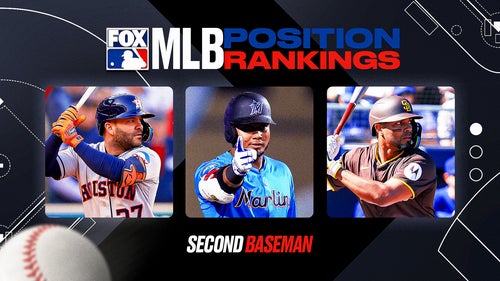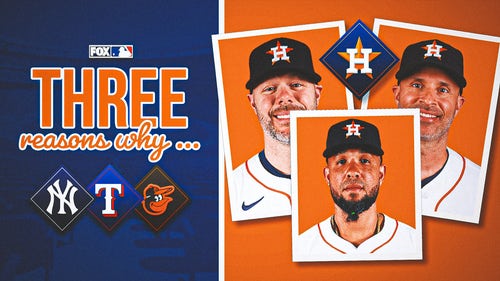
From title belts to toy dragons, here's why the Houston Astros are baseball's best team
Amid the postgame clatter of the Astros' 3–2 win over the Yankees last Thursday, Houston's two newest additions sat in the visitors' clubhouse of Yankee Stadium. They're nearly identical—one blue and one orange, and both featuring a map of the world encircled with gold, topped by an eagle with gem-encrusted wings, and with the team's logo front and center. You've seen them before: World Boxing Organization championship belts, usually hoisted above a prizefighter's head after a victorious bout. But on this chilly night in New York, they were being handed out to reserve outfielder Jake Marisnick and staff ace Dallas Keuchel, the rewards for a job well done after yet another Astros win.
The two title belts are the brainchild of 40-year-old designated hitter Carlos Beltran, who joined Houston this off-season as a free agent. (Oddly enough, they arrived just a few days after outfielder Josh Reddick debuted his own WWE-style championship belt for the team; he defaulted to Beltran, though perhaps one day there'll be a unification of the belts.) Custom-made online, they're awarded after every Astros victory to the player and pitcher of the game, with the previous recipient passing his belt to the new honoree like it's Augusta National's famed green jacket. And although the belts had only become a routine a couple of days before the Houston came to New York, they had already become a coveted accessory.
“It gives us a little more excitement to perform and rub it in our teammates' faces,” says Reddick. “When you get in the clubhouse, you can leave it in your locker and brag about it.”
Reddick had yet to claim the belt for himself, but given how his team's season is going, he likely won't have to wait long to earn it—or to pass it on. There is no team in baseball hotter or better than the Astros, who have won four straight games and nine of their last 10 and have not lost a series all month. They hold the best record in the majors at 29–12 and are in first place in the American League West by 7 1/2 games over the Rangers. That .707 winning percentage translates to 114 victories on the season, and even if Houston falls off that pace, the franchise-best mark of 102, set back in 1998, is still very much in play, as is the club's first division title in 16 years—and perhaps its first World Series trophy, too.
Armed with one of the best offenses in the game and a pitching staff that features a former Cy Young winner atop the rotation and a multi-inning weapon nicknamed “Dragon” in the bullpen, it's easy to see how the Astros went from last year's biggest disappointment to this year's juggernaut. But there isn't any one person who's responsible for Houston's blazing start. Instead, the Astros can thank a roster with few if any weak spots, one where those championship belts change hands with machine-like regularity.

“We've had a different guy every night do the job,” says manager A.J. Hinch. “Some days it's been George [Springer], some days it's been [Carlos] Correa, some days it's been [Jose] Altuve. Every fifth day, it feels like it's Dallas. Being able to rattle off names like that is the strength of this team.”
Keuchel's turnaround has been particularly impressive. After being voted the AL's top pitcher in 2015 on the strength of a 20–8 season and a 2.48 ERA that helped Houston win a wild-card spot, his ERA ballooned to 4.55 in '16, when he also made seven fewer starts because of a shoulder injury that cost him the last six weeks of the season. He came into spring training this year as one of his team's biggest question marks: Could he get back to his '15 self?
Thus far, the 2017 edition of Keuchel is a photocopy of the version from two years ago. He's averaging just over seven innings per outing, has turned in a quality start in seven of his nine turns and is 7–0 with a 1.84 ERA that is the best in the majors. And while his walk rate (2.0 per nine) is identical to what it was in 2015, and his home run rate (0.8 compared to 0.7) is nearly the same, his hit rate (5.8 vs. 7.2) is markedly better, and his ground-ball rate—the key to his success in 2015—is a sky-high 67.1%, the best of any qualified starter. Batters tattooed his sinker last year, hitting .302 against it with a .453 slugging percentage; those numbers have dropped to .186 and .299, respectively, this season.
Save the return to health, there's no one key to Keuchel's resurgence, and no overhaul of his approach or offerings. “He's been very stubborn with the style in which he plays,” Hinch says. Instead, it's been a confluence of factors: more strikes, weaker contact, slight changes in his delivery, better preparation. The result is a pitcher that, once again, no one wants to face.
“Nothing goes straight,” Reddick says. “He's not going to give you anything much to hit. He doesn't seem to throw anything over the middle of the plate ever.”

Keuchel isn't the only Astros pitcher leaving hitters helpless. In the bullpen, Chris Devenski has emerged as one of the season's biggest breakout stars, having struck out an eye-popping 44 batters in 24 1/3 innings. The righthanded reliever won the first pitcher-of-the-game belt back on May 9 after striking out three over 1 1/3 perfect innings against the Braves, but he has a more permanent trinket always present on the shelf of his locker: a tiny toy dragon. And while it isn't as gaudy as a title belt, it might have even more meaning. The memento is the physical representation of the nickname Devenski earned in the minor leagues from Double A Corpus Christi manager Rodney Linares, who told him during a mound trip two years ago: “Unleash the dragon.”
Devenski has embraced that mantra ever since, helping him go from being 25th-round draft pick of the White Sox in 2011 to a likely All-Star this season. Traded to Houston as the player to be named later in a deadline deal five years ago, Devenski was a long reliever when he joined the team early last season, but his filthy stuff—a power fastball that averages 95 mph and a diving, disappearing changeup—quickly made him an invaluable piece of the bullpen. So, too, did his versatility: The righthander could come into the game at any time in any situation, for as long as needed, making him a weapon that few other teams can boast—and that few hitters can figure out.
“He's been everything,” says George Springer. “He's closed the door, he's held it there. He's thrown six pitches, he's thrown 86 pitches. He's a competitor, and it's awesome when he comes out of that bullpen.”
As incredible as Devenski's 16.3 strikeout-per-nine ratio is, it's actually only second-best in Houston's bullpen. The top spot belongs to 30-year-old rookie James Hoyt, who has whiffed 18 batters in just eight innings for a mark of 20.3. Overall, Astros relievers boast a strikeout rate of 11.9 per nine (171 in 129 2/3 innings) that is far and away the best in the game. That includes the 10.5 of hard-throwing Ken Giles, who has converted 11 of his first 12 save opportunities after a rough debut season in Houston last year in which he was just 15-for-20 on save chances.
With that many pitchers throwing well, Hinch has a wealth of options at his disposal at any time. “Doesn't matter what inning or what hitter,” he says. “They're very adaptable.” They're also very reliable: The Astros are 20–2 when leading after six innings and have yet to lose a game in which they're ahead going into the ninth.
What helps that bullpen most, though, is having an offense that frequently gives its pitchers a lead to work with. Houston is No. 1 in team OPS+ (123), third in on-base percentage (.343) and fourth in runs per game (5.2). Among AL teams, only the Yankees, Rays and Rangers have hit more homers, and only the Red Sox and Indians have fewer strikeouts.
“Some lineups we've had in the past, there's been some empty outs, but this year, we can beat you with a single, but we can also beat you with a home run,” says Hinch. “That type of blend makes us a lot better.”
It's a big improvement from 2016, when Houston averaged just 4.47 runs per game, ranking a perfectly mediocre 15th in MLB. Most of the drag on that number came from a handful of positions—namely catcher (where regular Jason Castro slashed a meager .210/.307/.377), first base (a collective .680 OPS among five different players, third-lowest in the majors), designated hitter (where Hinch ran through 11 different players who combined for only 19 home runs at that spot, third-fewest in the AL) and the outfield (Houston's leftfielders managed a .649 OPS; centerfield was even worse at .625).

The Astros targeted improvements at those positions during the off-season, adding Beltran and Reddick in free agency and McCann in a trade with the Yankees. The three didn't have the highest ceilings thanks to their respective ages, but each still carries a dependable bat. Reddick, 30, is slashing a solid .286/.333/.459 and has solidified both rightfield (allowing the slugging Springer to take over center full-time) and the second spot of the order as a tablesetter. McCann, 33, has clubbed six homers, and his 136 OPS+ is behind only those of Altuve and Correa.
Beltran, meanwhile, has scuffled, hitting just .248/.288/.380 in 146 plate appearances. But it helps that, in the minds of his teammates, he offers more than just his bat—as do McCann and Reddick.
“It's something special to have guys like them in our clubhouse when we're such a young team,” says the 27-year-old Springer, now in his fourth season. “You can see them not panic or see them approach the way they go about the day.”
The value of veteran leadership is a cliché that's as old as baseball itself. And while it can be hard to quantify, both Hinch and his players know that it's helping. “They influence others,” Hinch says. “It's hard to describe presence, but you know when you have it.”

Never an outspoken player, Beltran has positioned himself as a mentor for a team lacking in experience—something Springer believes helped the club when it started 4–4, dredging up memories of last year's 17–28 start that buried Houston's postseason hopes alongside its sizable preseason expectations. “There was definitely a feeling of ’how is this happening' or ’not again,'” he says. “We play the game hard, and that can also lead you to do too much at times. They've been able to get us to slow down.”
Following Beltran's lead, Houston is playing free and easy this year, but while they have a cushion, there are still issues to be worked out. The rotation beyond Keuchel and Lance McCullers is thin, with veteran Mike Fiers (16 home runs allowed in 36 innings) and rookie Joe Musgrove (4.57 ERA) getting battered regularly. And while the Astros have been helped by miserable starts from Seattle and Texas, their closest competition in the AL West, the Rangers have ripped off nine straight wins to keep the Astros from running away with the race.
“We've got a long four or five months ahead of us,” says Springer. “We'll see what happens.”
After leaving the Bronx, the Astros headed for Miami, where they swept the Marlins and outscored them 22–4. Houston capped its 6–1 road trip with a 3–0 shutout win on Wednesday in which McCullers allowed just three hits through the first six innings and Devenski, Harris and Giles each worked a hitless frame in relief. After the game, the belts were handed out once more and then packed up for the trip back home, to await another victory and another pair of winners in a season that may end with the biggest triumph of them all.






































































































































